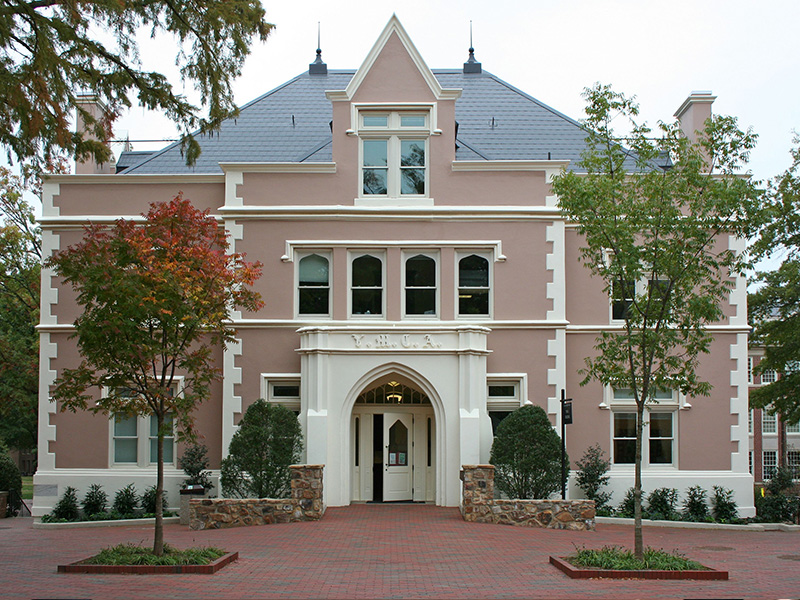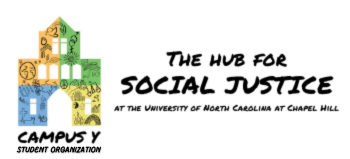
A new partnership between UNC Student Affairs and Innovate Carolina will enhance the work of Carolina students pursuing creative solutions that address today’s most pressing social challenges.
Based upon the Campus Y’s expanding focus on social innovation and entrepreneurship, this collaboration will boost the high-impact, student-driven work of the Y and jumpstart a broader campus-wide social innovation initiative. The two offices will jointly oversee the Campus Y building, staff, programs and student organizations, while amplifying the great work Student Affairs is already doing to support Carolina students.
“The partnership between Student Affairs and Innovate Carolina provides an opportunity for creating high-impact experiences for students where social innovation serves as the medium for building capacity around a core set of competencies in real-world settings,” said Bettina Shuford, associate vice chancellor for student affairs. “We believe the synergy gained from the partnership will provide greater intentionality in connecting students to a set of experiences that integrates psychosocial development with core knowledge around social innovation. Student Affairs is very excited about the partnership.”
The Campus Y will remain home to 30 student-led volunteer and advocacy organizations. During the initial phase, they will explore how they can benefit from support and resources gained through Innovate Carolina’s connection to the wider innovation and entrepreneurship community on campus and beyond.
The units’ mutual goals reflect the two primary pillars – “Of the Public, For the Public” and “Innovation Made Fundamental” – outlined in the Blueprint for Next, Carolina’s strategic framework designed to guide the university during the next decade.
“The partnership forged between Innovate Carolina and Student Affairs is a tangible expression of the university’s vision to infuse innovation into the work that students and faculty are doing to solve major social problems and put important ideas to use for the public good,” said Judith Cone, vice chancellor for innovation, entrepreneurship and economic development. “Our shared vision will result in a first-in-class social innovation program that is as strong as any in U.S. higher education.”
The Campus Y’s 8,000 square-foot facility is a hub for more than 4,000 students – mostly undergraduates – who volunteer more than 100,000 hours a year on a variety of social and environmental issues including education, public health, food security, and human rights, among others. It also oversees signature staff-led programs that feed into the university’s experiential learning model:
- Global Gap Year Fellowship, the first college-sponsored gap year program that allows students to design their own service-based gap-year experiences and the only program in the country that specifically recruits first-generation, lower income and youth of color.
- Bonner Leaders Program, a work-study program that strengthens character and community by offering students the opportunity to work with a local organization for four years, ensuring an ever-deepening understanding of key community issues as they assume increasing responsibility each year.
- CUBE, a social innovation incubator dedicated to supporting students as they develop scalable solutions to social, environmental, and economic challenges.
The partnership’s goal is to effectively support students as they tackle tough challenges through innovative endeavors such as community volunteer projects, public policy analysis, advocacy work, and social ventures.
Anastasia Soule, a senior studying public policy, economics, and social entrepreneurship, has used the Campus Y and Innovate Carolina’s support and synergy to establish her local business, Project Phoenyx.
“With Innovate Carolina’s network, I was able to practice effective entrepreneurial skillsets, while the Campus Y provided a platform for me to critically engage with community-identified issues,” said Soule. “This powerful coupling allowed me to use the intersection between my academic strengths and personal passions as a vehicle for social change. I am grateful I was able to lean on both campus institutions for resources to create innovative projects that led to both personal and community growth.”
